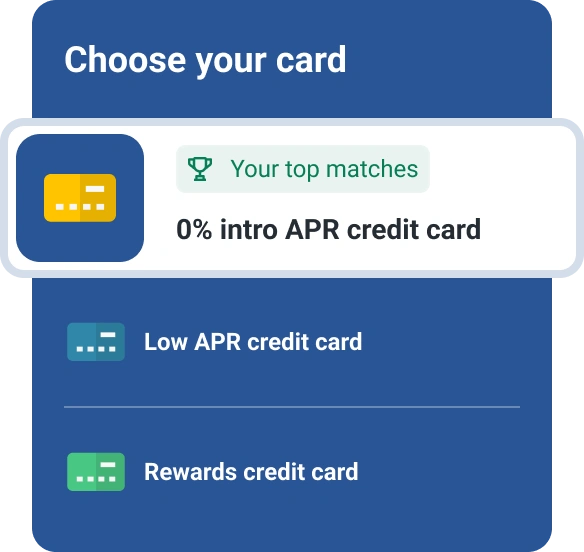When to Ask for a Credit Limit Increase or Get a New Credit Card
Quick Answer
If all you need is more available credit, a credit limit increase may be enough. But if you want more available credit and other new perks, consider getting a new credit card.

Getting access to more available credit can provide you with more spending power and make it easier to lower your credit utilization rate, which plays a crucial role in your credit score. That said, increasing your available credit can increase your chances of going into debt, so you'll want to make sure you're managing your credit responsibly.
To obtain more credit, you typically have two options: Request a credit line increase on an existing card or apply for a new credit card. Here's what to consider with each option to determine the best path for you.
When to Ask for a Credit Limit Increase
A credit limit increase may be worth considering if you'd rather not add another credit card to your list of financial responsibilities. Depending on the situation, however, a credit limit increase may not necessarily give you what you're looking for, and you could miss out on some solid benefits that can come with a new credit card.
Pros of a Credit Limit Increase
If you're considering a credit limit increase, there are both benefits and drawbacks to be considered. Here are two of the primary benefits of choosing a credit line increase over a new credit card:
- Simplicity: Adding a new credit card to your wallet could make it more difficult to keep your accounts organized. If you prefer to keep things simple, asking for a credit limit increase on an existing account may be more appealing.
- No change to your length of credit history: Every time you open a new credit account, it decreases the average age of your accounts, which could negatively impact your credit score for a short period of time. You don't have to worry about that with a credit line increase.
Cons of a Credit Limit Increase
On the flip side, you'll also want to consider the potential drawbacks of opting for a larger line of credit over a new card:
- No guarantee you'll get approved: Unless your credit score and income have increased since you first opened the account, your card issuer may not consider you eligible for a credit limit increase. Even if you do get approved, there's no guarantee the increase will be as large as you hoped.
- Hard inquiry: Even though you're not applying for a new account, you still may end up with a hard inquiry on your credit reports when you request a credit limit increase. These result from a card issuer checking your credit, and can temporarily lower your credit scores by a few points.
- No new cardholder benefits: If you were to apply for a new credit card instead of requesting a credit limit increase, you could get a sign-up bonus, introductory 0% APR promotion and other benefits that some card issuers offer to new cardholders.
How to Get a Credit Limit Increase
To request a credit limit increase, start by calling the number on the back of your credit card. Once you get in touch with a customer service representative, let them know you'd like to request a credit limit increase.
You'll generally be asked some questions about your financial situation and undergo a hard credit check. If you're approved, you may see the higher credit limit take effect immediately.
In some cases, you can apply through your online account, where the process is generally the same.
When to Avoid a Credit Limit Increase
If you want access to additional credit and don't want to miss out on new cardholder benefits, you're likely better off applying for a new credit card instead of increasing the limit on your existing one.
When to Get a New Credit Card
The decision to get a new credit card over a credit limit increase may depend on what you can qualify for as an applicant.
For example, if you want to take advantage of a 0% APR promotion on purchases or balance transfers, or you like the idea of getting an intro bonus along with more available credit, you may be better off applying for a new card. Just be sure that you can handle the logistics of adding another account to your financial plan.
Pros of Getting a New Credit Card
Just as asking for a credit limit increase has both advantages and disadvantages, the same is true for applying for a new credit card instead. Potential benefits include:
- New cardholder perks: Perks for new cardholders and intro 0% APR promotions are plentiful among rewards credit cards and could potentially give you hundreds of dollars in value on top of the increased available credit.
- New rewards: If you want to maximize your rewards, you generally can't do it with just one credit card. If you take your time, you may be able to find another credit card that can give you better rewards on certain spending categories, giving you more value over time.
- No need for improved credit or income: While an existing card issuer may require that you have better credit or a higher income to get a credit limit increase, that's not necessarily true if you apply for a new one with another card issuer.
Cons of Getting a New Credit Card
That said, applying for a new credit card isn't always the right decision either. Here are some potential drawbacks to keep in mind:
- No guarantee of approval: Even if your credit is in decent shape, there's no guarantee that you'll get approved for a new card or that its credit limit will be enough to meet your needs.
- Credit impact: Both options will result in a hard inquiry, but adding a new credit card account to your credit reports will result in a hit to your length of credit history. This won't have a long-lasting effect on your credit score, but it may matter if you're hoping to keep your credit score high in the near future for another reason.
- Your credit utilization on existing accounts won't be helped: A new credit card can improve your overall credit utilization, but it won't have a direct impact on the credit usage of your existing accounts. If your credit scores are being affected by high credit usage, it's typically best to either pay down your balances or ask for a higher limit.
How to Get a New Credit Card
You usually need good credit to have good approval odds with a rewards credit card or a card that offers an introductory 0% APR. With that in mind, you can use Experian's card comparison tool to get matched with cards that might be a good fit based on your credit file.
You'll also want to do some research on specific features and benefits that you want in a new card. This process can take time, but shopping around and comparing multiple cards can help you find the best fit for you.
When to Avoid Getting a New Credit Card
If you're applying for a mortgage loan in the near future, it's best to avoid adding new credit accounts six to 12 months in advance of your mortgage application. It may also be worth avoiding a new card if you're concerned about keeping things organized.
Check Your Credit Before Applying for a Credit Limit Increase or New Credit Card
Regardless of which option you choose, you'll have a good chance of getting what you're looking for if your credit score is in great shape. Check your credit score to get a snapshot of your overall credit health. If it falls in the good range or better—typically a FICO® ScoreΘ of 670 or higher—you may have better odds of approval. But the higher your score is, the easier it will be to qualify.
If your score isn't where you want it to be, review your credit report and identify areas where you can improve, then take steps based on what you find. You ordinarily won't get results overnight, but taking this time to improve your credit can pay off in the long run.
Don’t apply blindly
Apply for credit cards confidently with personalized offers based on your credit profile. Get started with your FICO® Score for free.
See your offersAbout the author
Ben Luthi has worked in financial planning, banking and auto finance, and writes about all aspects of money. His work has appeared in Time, Success, USA Today, Credit Karma, NerdWallet, Wirecutter and more.
Read more from Ben

